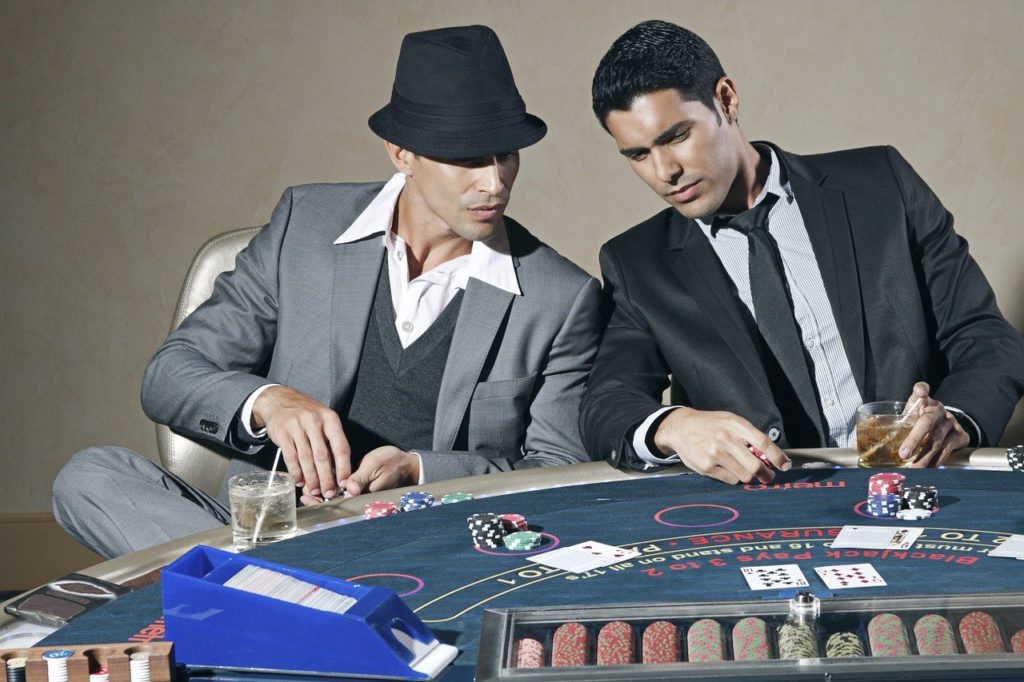If you are into high-stakes and high-intensity games and love the atmosphere of brick-and-mortar casinos where you can spin the reels while sipping martini out of a highball glass, the chances are – you’ll need to give our guide a read. It’s only fair if you ask – but why? I am aware of my limits, I don’t chase my losses, and I don’t lose track of time once I step into the casino grounds, you might add.
We’ll answer by pointing to the daunting statistics: up to 5.3% of adults worldwide are affected by gambling disorders. Even though you think you’re safe, we advise you to take extra precautions in the world where online gambling is skyrocketing, and ever-younger consumers become addicted to the spinning reels. We’ll give you some tips and tricks on how to gamble safely and stay out of the statistics.
Keep gambling entertaining
Even though it’s hard to ignore the adrenaline rush of seeing all the symbols align on a fruit machine, the chances are you will give away more money than you receive. We’ve all heard of huge poker winnings and notorious losses, as gambling is as volatile and unpredictable as life itself. Yes, there are professional gamblers who earn a living from their craft, but we have to disappoint you – they are usually math geniuses who employ advanced strategies such as card counting. Most commonly, the house comes out the winner in the end. Never consider gambling as your primary source of income, but rather as a pleasant pastime.
Gamble with what you can afford to lose
Always keep in mind the budget you’re ready to spend on entertainment purposes, and do not tip into your savings, bills, or renting money. Set a cash limit in advance and stick to it. Once you spend all of it, be strong enough to draw back and stop. Problem gamblers often borrow money from friends and family, led by the illusion that they can control their urges. Once they win, they start pushing their luck and trying to make up for the huge losses they’ve had in the process.
Be conscious of time
Time consciousness is of crucial importance in avoiding the “bet regret” scenario. If you find yourself immersed in a game hours after midnight has passed, losing track of time and duties, time limits might be a good idea. The more time you spend gambling, the more money you will part with. A helpful trick is setting the alarm to wake you up from the gambling fever and sober you up. When the time’s up – make sure to gather your wits and quit.
Do not chase your losses
You’re on a winning streak, head over heels, piling up cash, when all of a sudden your luck changes and you start losing. Soon, you realize that the money you allocated for gambling purposes has run out, and you’re left with your rent and groceries budget. If you’re tempted to use it to chase your losses and make up for the money you had to part with – don’t. It won’t fix your losing streak; just extend it to finances you cannot afford to lose.
Don’t gamble when you’ve had too many drinks
Substance abuse and gambling don’t go hand in hand—quite the opposite. Lots of people gamble or place bets as a way of coping with depression or life crises, and that’s a road that leads to destruction. To be aware of the money you’re allowed to spend without concerns and have the ability to set limits, you need to be clear-headed. If you take drugs or alcohol while gambling, you’ll only cloud your judgment and start gambling irresponsibly.
What to do if you went a step too far?
Dealing with problem gambling isn’t an easy task, and it involves lots of work. Nevertheless, the goal is reachable. The first step is to recognize that you have a problem. Reaching out for help is now easier than ever, with numerous hotlines and support groups available online. Treating gambling addiction is possible with professional therapy that can be individual, family, or group-based, with rehab programs and even medications. The whole process boils down to the importance of improving your overall lifestyle and includes positive distractions and alternatives to gambling. Gambling can be a fun and relaxing pastime or addictive vice, and it’s up to you to choose.



